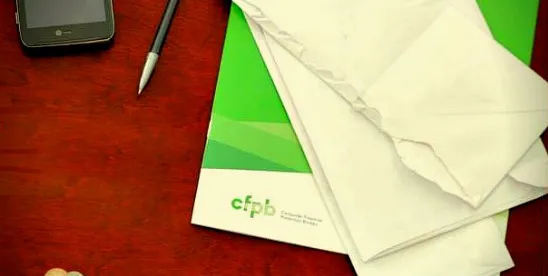On April 24, the CFPB released its latest edition of Supervisory Highlights detailing the agency’s actions taken to combat “junk fees” it alleges are charged by mortgage servicers. This spotlight on fees in mortgage servicing marks a continuation of previous CFPB exam work on the agency’s ongoing efforts to combat excessive fees affecting consumers in personal banking, student and auto loans in addition to mortgage servicing.
In its most recent edition of Supervisory Highlights, CFPB examiners cited violations for the following practices:
- Illegally charging property inspection fees. CFPB examiners found that some servicers improperly charged property inspection fees on Fannie Mae loans, in contravention of the Fannie Mae Servicing Guidelines. The Bureau found that, in some cases, servicers would charge a property inspection fee even though the property was borrower or tenant occupied and quality right party contact had been established within 30 days, the borrower had made a full payment within the last 30 days, or the borrower was performing under a loss mitigation option.
- Unfair late fees. Mortgage servicers were found to have engaged in unfair acts and practices by imposing unauthorized fees on homeowners that exceeded the amount in the loan agreement, and/or (2) charging late fees even though borrowers had loss mitigation agreements that should have prevented the fees.
- Fee violations related to COVID-19. During the COVID-19 pandemic, servicers offered loan modifications under Regulation X but they failed to waive fees after borrowers accepted the modifications.
- Failing to provide appropriate description of fees in periodic statements. Examiners found servicer’s failed to provide a “brief description of certain fees and charges” on periodic statements in violation of Regulation Z. Instead, used the generic term “service fee” without any other information.
- Mismanagement of Tax and Insurance Payments. Servicers accepting payments for property taxes and insurance failed to remit them promptly, causing penalties for borrowers. According to the Bureau, complaints were often necessary for servicers to take responsibility for these issues.
- Deceptive Practices in Evaluating Repayment Options. Examiners found instances where borrowers were approved for loss mitigation options when in fact no determination had been made. Some were wrongly informed of missed payments and urged to seek repayment options and others’ requests for help were improperly denied.
- Escrow violations. Servicers were cited for failure to make timely disbursements from consumer escrow accounts in compliance with Regulation X. The Bureau found that servicers attempted to make disbursements in a timely manner, but the payments did not reach the recipients. The servicers then took months to reissue the payments. As a result, borrowers incurred penalties due to the late payments.
Putting It Into Practice: This recent announcement indicates that the CFPB has no intention of slowing its crackdown what it calls “junk fees” (previously discussed here, here and here). The Bureau also seems focused on ensuring that servicers took appropriate measures to assist borrowers and fulfil their compliance obligations during the COVID-19 pandemic.



 />i
/>i
